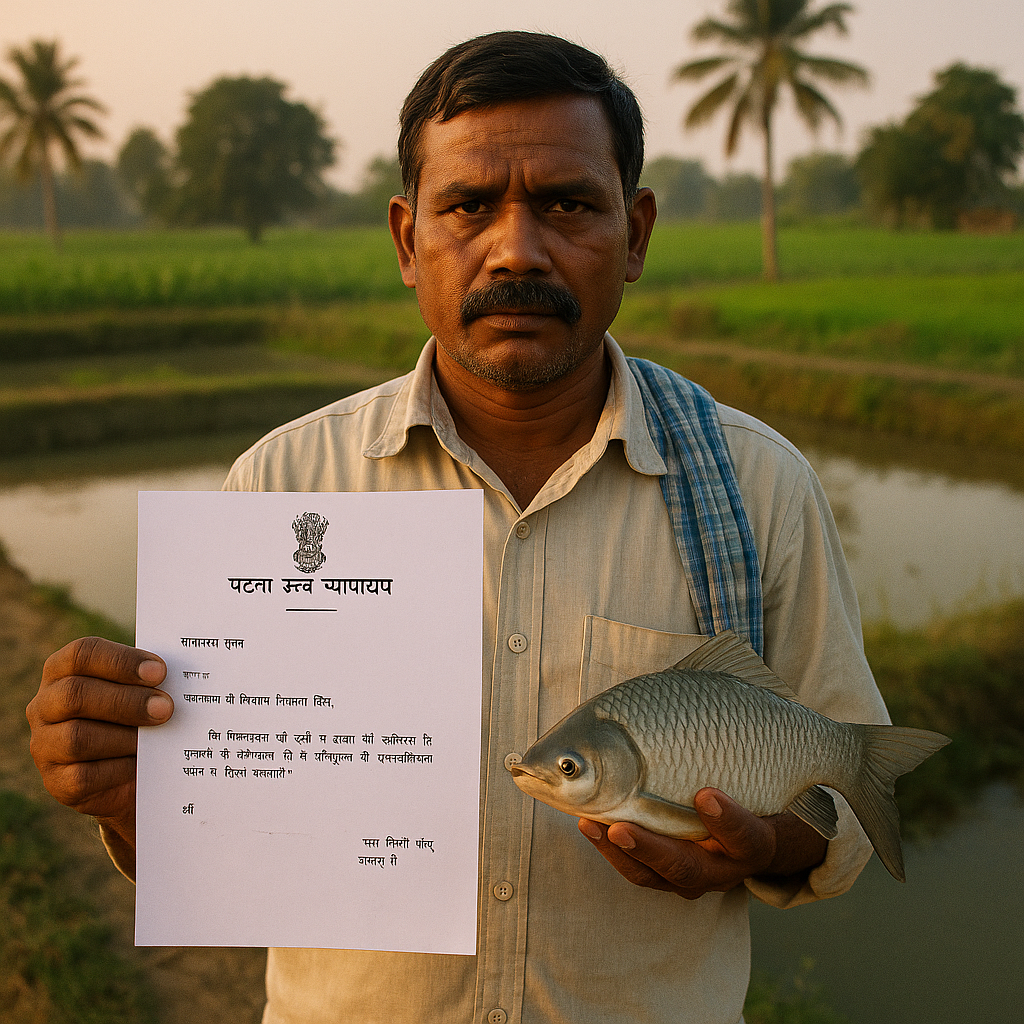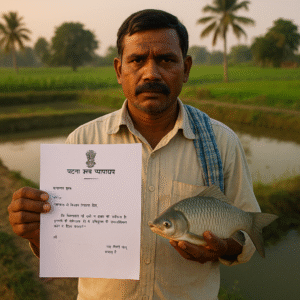The Patna High Court, in a writ petition decided on 6 July 2020, dismissed a challenge by a private lessee seeking a further extension of a government fish seed farm lease beyond the maximum period allowed under the Bihar Fish Jalkar Management Act, 2006. The Court held that when a statute caps the tenure of a settlement, any contrary clause in a private lease deed cannot override the law and is void as being opposed to public policy.
In essence, the petitioner had been granted a 10-year lease, effective 1 January 2010 to 1 January 2020, for operating the Raxaul Fish Seed Farm in East Champaran. As the term neared its end, the petitioner sought renewal for another 10 years, pointing to a clause in the 28 June 2010 lease that suggested a further extension “may be considered” after successful operation for 10 years. The Director of Fisheries, however, declined to extend the settlement through a letter dated 9 May 2020 and directed handover to the District Fisheries Officer. The petitioner challenged that decision through a writ petition under Article 226.
During the hearing (conducted by video conferencing in view of the COVID-19 pandemic), the Court asked the petitioner to explain how any extension could be claimed as a matter of right when the 2006 Act itself limits long-term settlements of jalkars to a maximum of ten settlement years. The Bench reproduces Sections 5 and 6 of the Act, which make clear that long-term settlement is for “ten settlement years,” subject to the procedure and eligibility conditions laid down by the statute.
The petitioner’s counsel relied on the lease clause that contemplated a further 10-year extension based on performance. But the Court emphasized a fundamental rule: obedience to the command of law is an essential ingredient of public policy, and any agreement or lease that departs from a statutory mandate is void. Courts cannot countenance contractual arrangements that contradict clear legislative limits. Consequently, the “extension” clause in the lease could not give the petitioner a legally enforceable right to renewal beyond the statutory ceiling.
On behalf of the State, it was submitted that the Act imposes a categorical cap—no long-term settlement can exceed 10 years—and therefore no extension could be granted after the expiry of the original term. The Court agreed, holding that, given the statutory bar, the petitioner had “no right under the law” to demand extension. Finding the writ petition devoid of merit, the Court dismissed it.
Significance or Implication of the Judgment
This decision carries clear implications for private operators of government fisheries and other natural resource-linked assets in Bihar. First, it underscores that statutory frameworks—especially sector-specific instruments like the Bihar Fish Jalkar Management Act, 2006—govern both the tenor and process of settlement. Where the Act sets a maximum duration, parties cannot contract around it. Any promise of extension in a lease deed is at best conditional and cannot survive when it conflicts with the statute.
Second, government departments benefit from a reaffirmation that administrative decisions declining extension after the statutory period will ordinarily withstand judicial scrutiny if they are aligned with the Act. This reduces the risk of prolonged litigation over “expectations” created by renewal clauses and ensures that resources like jalkars (water bodies used for fisheries) can be re-settled in accordance with the procedure and eligibility criteria laid down by law, including preference schemes and notice requirements in Section 6.
For the public, the judgment advances transparency and fairness in how public resources are managed. It signals that long-term monopolization through serial extensions is not permissible when the legislature has mandated periodic cycles and competitive selection (e.g., trained fishermen, local residency, and notice-based processes). This periodicity can support wider participation, local employment, and better oversight of performance.
Legal Issue(s) Decided and the Court’s Decision with Reasoning
- Whether a lessee of a government fish seed farm can compel extension of a lease beyond ten years on the strength of a contractual clause, when the Bihar Fish Jalkar Management Act, 2006 caps long-term settlements at ten settlement years.
Decision: No. The statute prescribes a maximum of ten settlement years for long-term settlements. A lease clause suggesting further extension cannot override statutory provisions; any clause contrary to the Act is void as opposed to public policy. Therefore, the petitioner has no enforceable right to extension beyond the statutory cap. - Whether the administrative refusal (letter dated 09.05.2020) to extend the lease was illegal or arbitrary.
Decision: No. The refusal aligns with the Act’s ceiling on tenure. In the face of a clear statutory bar, the administrative decision cannot be faulted, and the writ petition lacks merit.
Case Title
Vinod Mahto v. The State of Bihar & Ors.
Case Number
Civil Writ Jurisdiction Case No. 6132 of 2020.
Citation(s)
2021(3) PLJR 95
Coram and Names of Judges
Hon’ble Mr. Justice Mohit Kumar Shah.
Names of Advocates and who they appeared for
- Mr. Sandeep Kumar — for the petitioner.
- Mr. Lalit Kishore, Advocate General — for the State (respondents).
Link to Judgment
MTUjNjEzMiMyMDIwIzMjTg==-y3j–am1–ABE–am1–pwU=
If you found this explanation helpful and wish to stay informed about how legal developments may affect your rights in Bihar, you may consider following Samvida Law Associates for more updates.








